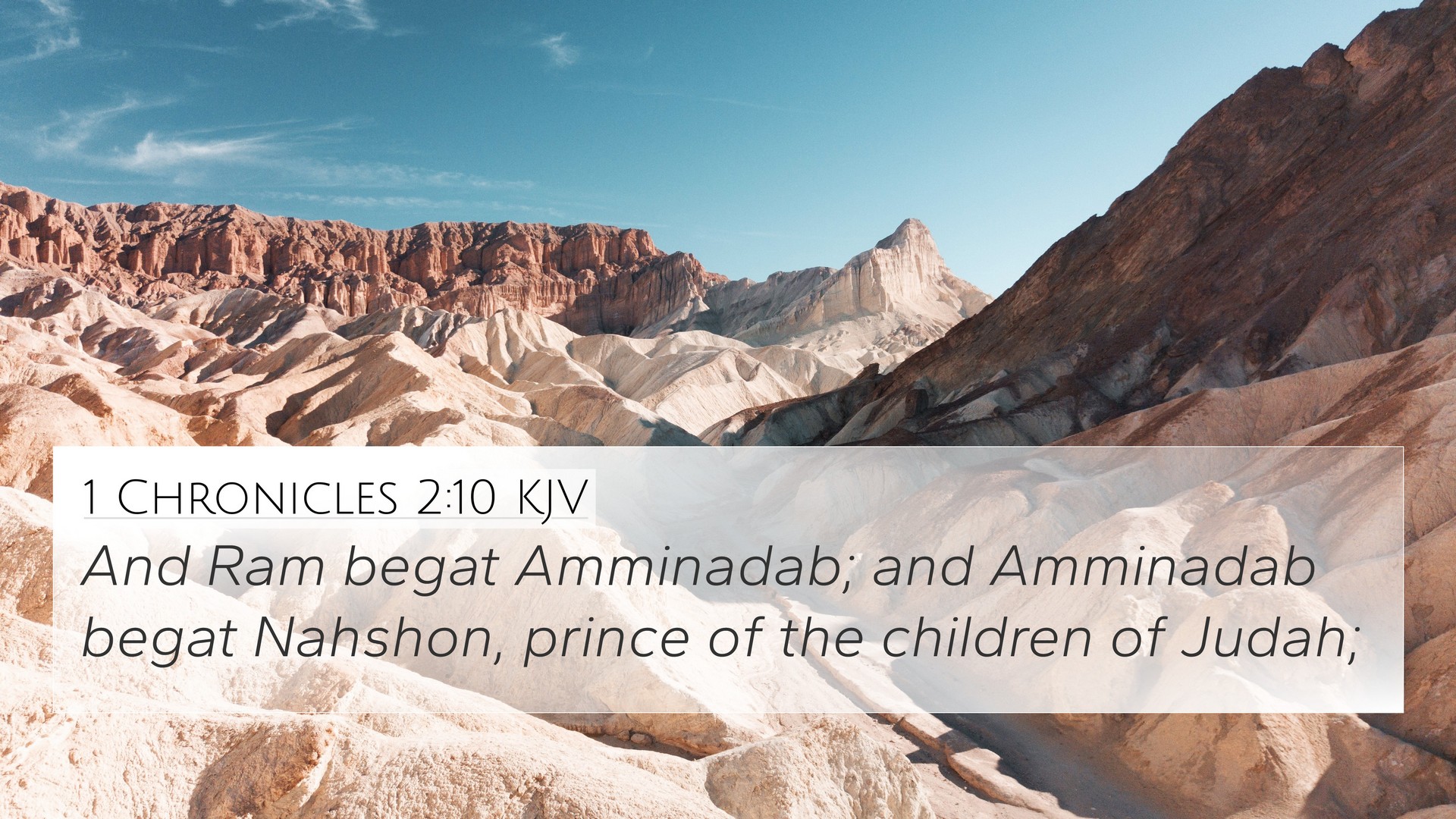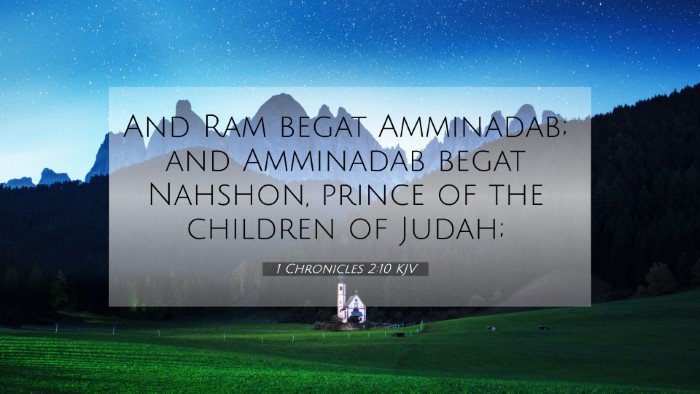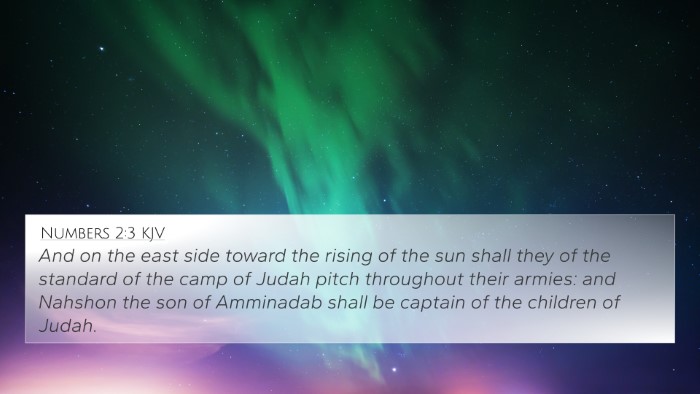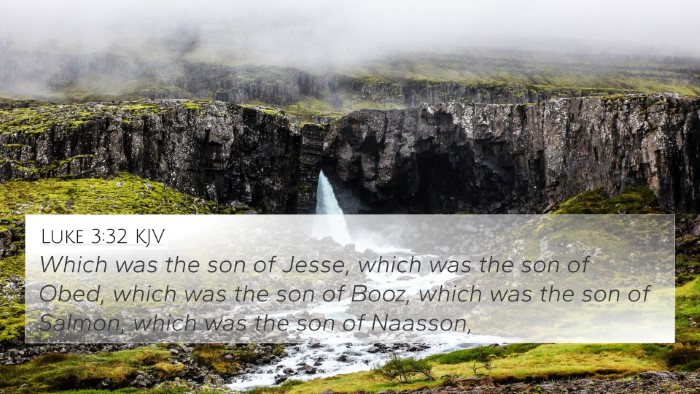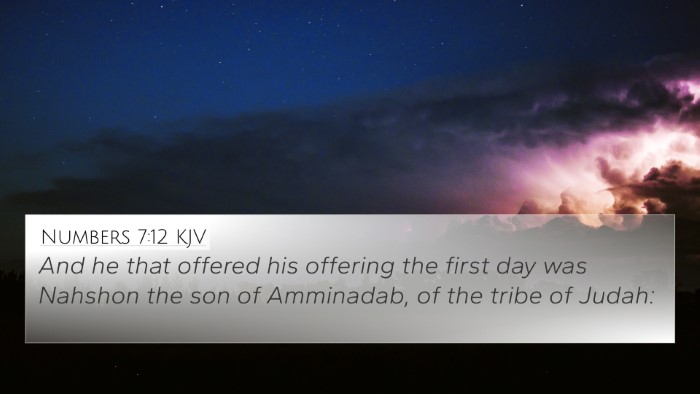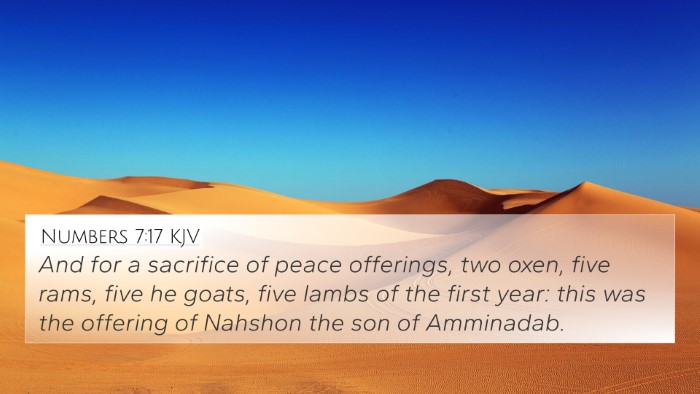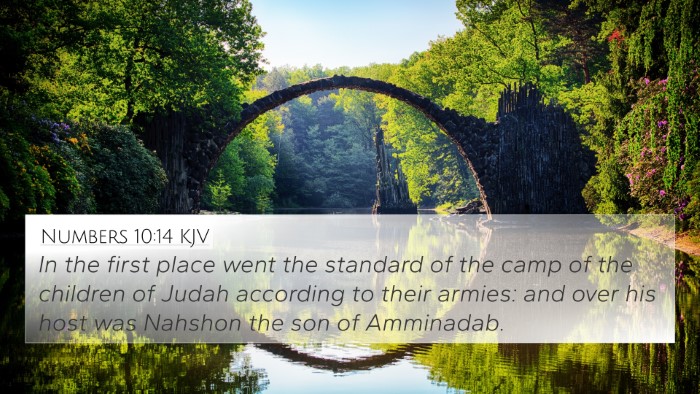Understanding 1 Chronicles 2:10
In 1 Chronicles 2:10, we read: "And Ram begat Amminadab; and Amminadab begat Nahshon, and Nahshon begat Salmon." This verse is part of the genealogical records found in the Chronicles, which serve to establish the lineage of Israelite families. These genealogies carry not only historical significance but also theological implications, revealing the fulfillment of God's promises.
Overview of Key Themes
- Genealogy and Heritage: This verse emphasizes the importance of lineage in the Israelite community.
- Faithfulness of God: The record shows how God preserved a remnant through the generations.
- Messianic Line: The mention of Salmon, who is in the line of Jesus, points to God's redemptive plan.
Historical Context
The genealogy found in 1 Chronicles serves to reestablish identity for the post-exilic community. The author, likely Ezra, emphasizes the importance of lineage to prove the legitimacy of the returned exiles and their claim to the land. Matthew Henry reflects on how such genealogical records demonstrate God's faithfulness through generations.
Commentary Insights
Both Albert Barnes and Adam Clarke highlight the significance of each name in the genealogy. They note that Amminadab speaks of God's 'people' and Nahshon indicates 'a serpent,' which can symbolize wisdom or craftiness. Matthew Henry further expands on the lineage leading to King David, illustrating the direct connection that God's covenant extends through generations.
Cross-Referencing Biblical Texts
The connections between Bible verses are revealed through cross-references that inform our understanding of 1 Chronicles 2:10. This facilitates a deeper engagement with Scripture and highlights the interrelationships found within the text.
Key Cross-References
- Exodus 6:23: Mentions Amminadab and his connection to Aaron.
- Matthew 1:4-5: Provides a link to Salmon's lineage, showcasing the genealogy of Jesus.
- Ruth 4:20-22: Another reference to later descendants in the same lineage.
- Luke 3:32: Links to the genealogy in the New Testament.
- Hebrews 7:14: Points to Jesus coming from the tribe of Judah, emphasizing the royal heritage.
- 1 Samuel 16:10-13: References the selection of David from the lineage.
- 1 Chronicles 1:34: Broadens the understanding of the genealogical records.
Inter-Biblical Dialogue
Connections between Old and New Testament scriptures can enrich the reader's understanding. The continuity of God's plan from the genealogies to the New Testament demonstrates how themes of redemption and covenant fulfillments resonate throughout the Bible.
Thematic Bible Verse Connections
The themes presented in 1 Chronicles 2:10 can be further explored through various similar verses that discuss lineage, covenant, and God's faithfulness.
Related Themes
- Jesus as the fulfillment of prophecy: Referenced in Isaiah 11:1.
- God's faithfulness over generations: Psalm 105:8-10 emphasizes God’s everlasting covenant.
- The chosen people of Israel: Seen in Deuteronomy 7:6-8.
- The royal priesthood concept: Referenced in 1 Peter 2:9.
How to Utilize Bible Cross-references
Understanding how to use Bible cross-references can significantly enhance your study. Using tools like a Bible concordance or cross-reference study guide allows readers to uncover deeper meanings and thematic connections between passages.
Practical Tools for Cross-Referencing
- Bible Concordance: Useful for finding specific words or themes.
- Bible Cross-Reference Guide: A systematic approach to identifying related verses.
- Bible Study Apps: Many apps contain built-in cross-referencing features.
Conclusion
1 Chronicles 2:10 serves as a pivotal verse that connects believers to their spiritual heritage and the unfolding narrative of salvation history. By engaging in comparative Bible verse analysis and using cross-referencing techniques, readers can uncover the profound depth and interconnectedness of Scripture. Engaging with such genealogical records helps affirm God's promises and His faithfulness throughout history, encouraging believers to explore the rich tapestry of God's Word.
